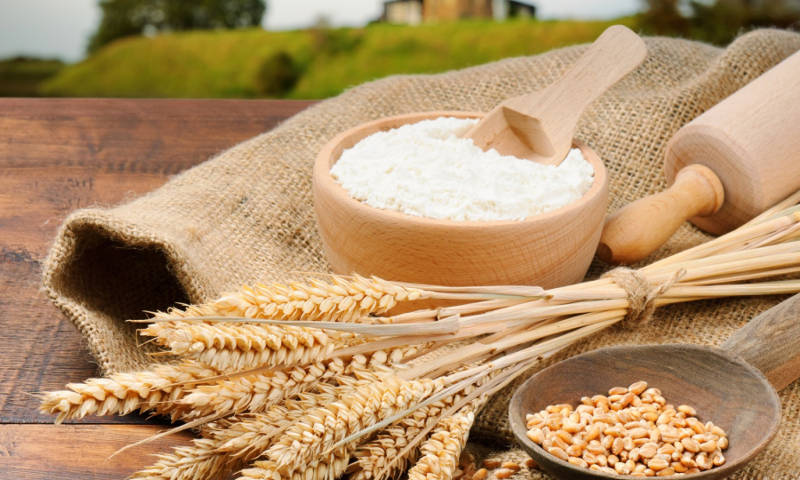- Protein: gluten is the most important protein in the wheat; by adding water to the flour, gluten network is formed; this network cause the structure of the flour to be formed; also, this network maintain the gas from the fermentation process during baking the bread. The composition of the gluten in wheat is likely to be different; but, in general, gluten of the wheat contains 85% protein, 8.3% fat, 6 %starch and 0.7% ash. Gluten of the wheat is extremely energetic in terms of food; especially, bran (Sebos) in it which have a large protein. Currently, annually, about 85 million tons of protein is consumed in the world which about 40 million tons i.e. About half of the protein consumed in the world are provided from grains, especially wheat.
- Starch: Most of ingredients of corn and endosperm are composed of starch that contains round and small seed in diameter of 0.001 to 0.035 mm which are insoluble in cold water. White wheat flour is produced from this material. Although the water absorption of starch is much less than gluten; but, in terms of value, the amount of starch is much more gluten; thus, flour of the starch is the main cause of water absorption.
- Carbohydrates: carbohydrates in the wheat seed is more in the endosperm; and its value reach to 1 to 2 percent. The most important carbohydrates in the wheat include: Glucose, fructose, maltose, sucrose, Retene and melibiose.
- Cellulose: it is more in the shell of seeds and Aleron part; and it is indigestible. The most important feature of cellulose in the human body is to cause to stimulate the expansion and contraction of the muscles of the stomach and intestines. The amount of cellulose in wheat is 2%; sometimes, it is possible to reach 10%.
- Fat: The amount of fat is not the same in different parts of the seed; it is more in the wheat germ. The total amount of fat in the seeds is two percent. Fat has different vitamins especially vitamin E.
- Mineral: This material is not distributed equally; they are more in bran and germ than endosperm. The most important minerals in wheat grains include: potassium, phosphorus, calcium, iron, sulfur, magnesium, chlorine, sodium, copper, manganese and iodine.
- Vitamins: Seeds of grain composed of various vitamins. The most important of them are B1, B2, B6.
The nutritional value of wheat

Seeds of wheat and its flour have a lot of minerals, protein, and vitamin and … that we will mention some of them in the following:




